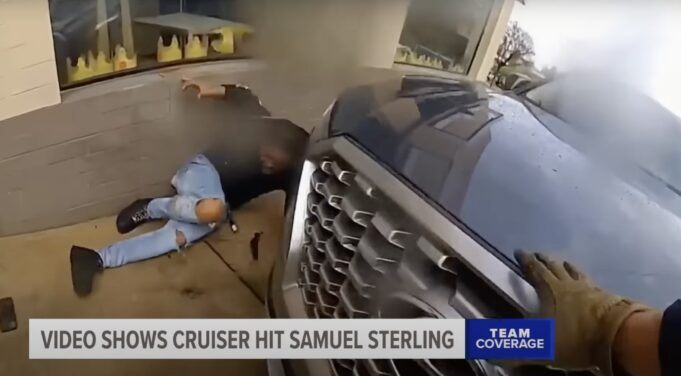GRAND RAPIDS, Mich.—The family of 25-year-old Samuel Sterling, a father of two and a rapper just breaking into the hip-hop scene as a talented local artist, continues to demand accountability and transparency in his death.
In an official statement released April 25, Colonel James F. Grady II, Director of the Michigan State Police (MSP), said he had been in contact with Samuel Sterling’s family, telling them and the public that the MSP is committed to conducting a thorough and impartial investigation.
“I would like to thank the Office of Attorney General for coming alongside us in this investigation and for their commitment to conducting a timely review of the evidence in the case,” he said shortly after the fatal incident.
But the matter and manner of Samuel Sterling’s death has his family and the public heartbroken and demanding justice. On April 17 the young, Black man was killed after being struck and crushed by an unmarked state police vehicle in Kentwood, a southeastern suburb of Grand Rapids, while he was fleeing on foot from officers attempting to arrest him for alleged probation violations.
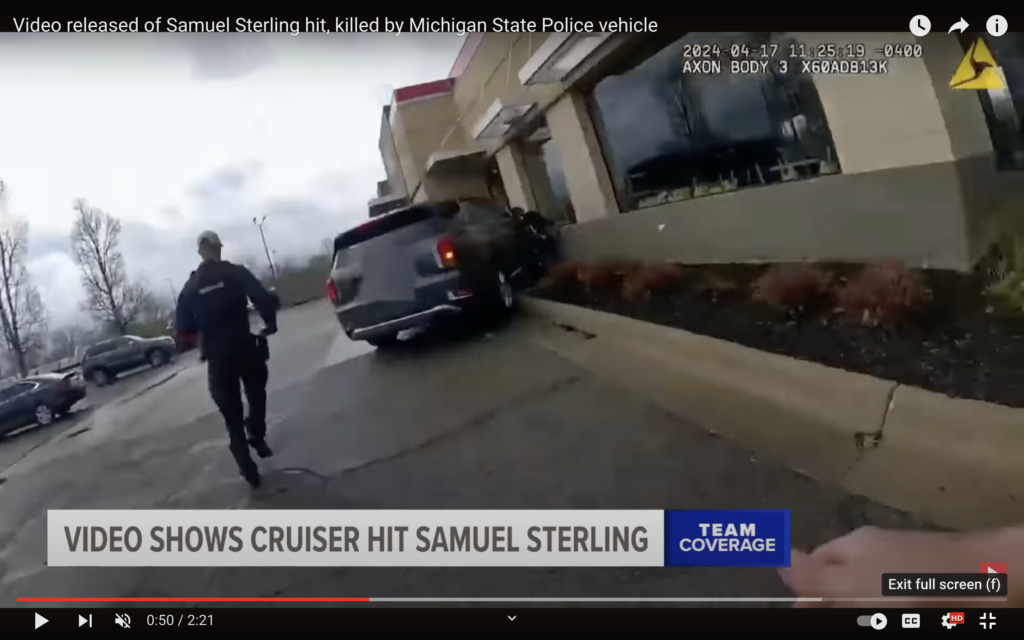
“The death of Samuel Sterling was unacceptable,” Michigan Governor Gretchen Whitmer said in a May 10 news release. “My heart is with his family and the Grand Rapids community. The state trooper involved is on unpaid suspension.
The MSP investigation has been completed and Attorney General Dana Nessel is reviewing to make a final determination on any charges. I have full faith that her office will work quickly to arrive at a fair and just decision as to whether criminal charges are appropriate,” the governor’s statement read in part.
“In light of video footage showing a departure from MSP protocols and the high standards of the department, my expectation is the State of Michigan will take steps to terminate the trooper’s employment if criminal charges are issued,” the statement continued.
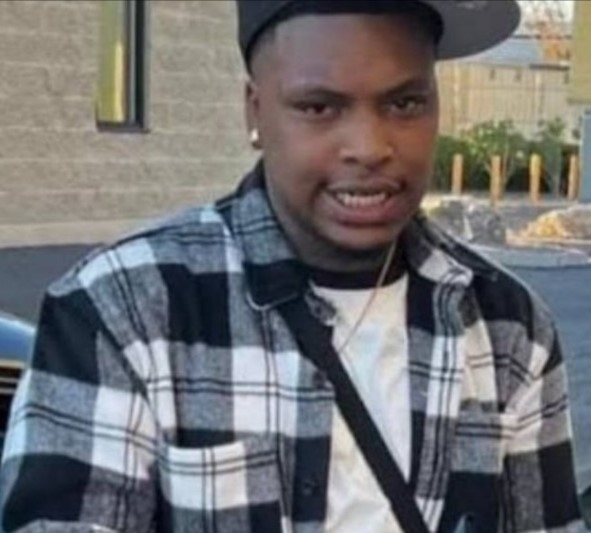
But promises to investigate why a state trooper saw fit to ram Samuel Sterling’s body into a concrete wall with a large SUV, will neither bring back a son to his grieving parents nor a father to his young children, Jermar Sterling, a family member close to the parents told The Final Call.
Jermar Sterling, who also serves as the family spokesman, said that a major issue for Samuel’s mother and father is the manner of his younger cousin’s death and the lack of medical care given to him immediately after being struck by the police vehicle.
He said Samuel Sterling, previously sentenced over a gun charge, was wanted for violating terms of his probation related to alleged marijuana usage, for missing appointments, and for crossing state lines without permission. Police found no weapon on Samuel Sterling nor in his proximity at the fatal April 17 encounter.
“He had a gun charge, and so he did his six months for the gun charge, and a part of that agreement was that he would have to do probation,” Jermar Sterling said. “The gun charge was carrying a concealed weapon, that was his charge and (he) got probation for that.”
Samuel’s father, Michael Sterling, 55, told The Final Call that he didn’t know whether or not his son had permission from his probation officer to cross state or county lines to earn income as a performer. “He’s a rapper, you know, so I guess he was on his way to or from a show that he did,” Michael Sterling said. “He didn’t really tell me everything, he would (talk more with) his mom.”
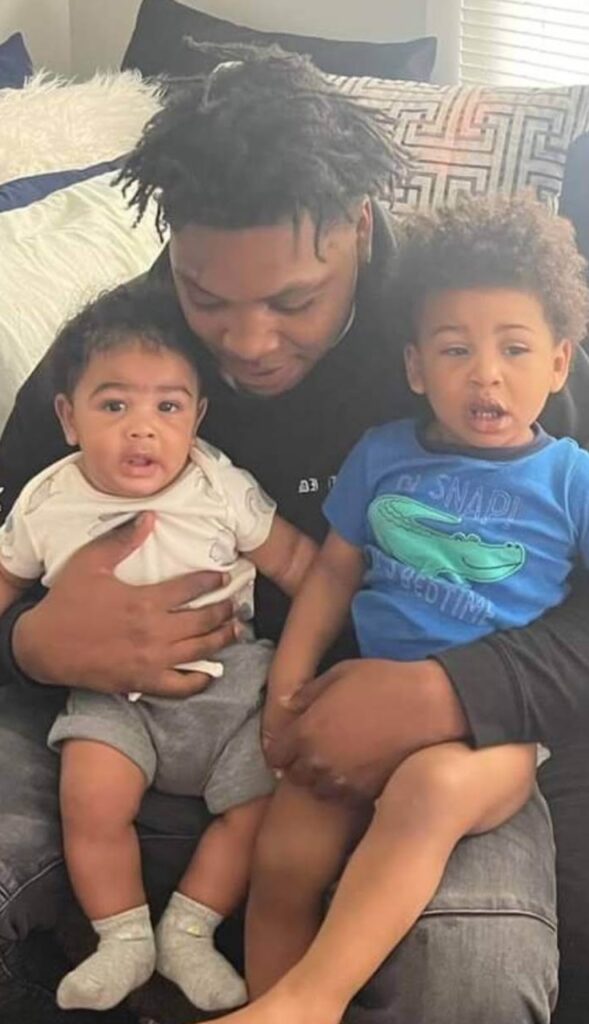
Trauma and the war on Black youth
For decades, the Honorable Minister Louis Farrakhan has issued a clarion call and warning on the dangers facing Black, so-called Latino and Indigenous youth at the hands of law enforcement. The Minister has shared guidance, warnings and solutions and has warned the Black community that they must unite to save Black youth.
The Minister has explained that Black, so-called Latino and Indigenous youth pose a threat to society, and stated that he is not sure that they (young people) understand why they are viewed as a threat.
“I want Black youth to hear this message because police authorities are the same today as they were during slavery. In fact, this is how policing began. Police were formed to catch runaway slaves, bring them back to their masters and make examples of them to throw fear into other slaves. It’s the same today.
Police authorities are trained to kill, as well as to protect,” Minister Farrakhan stated in a message titled, “Justifiable Homicide: Black Youth in Peril,” delivered October 28, 2007.
Michael Sterling described his youngest child as multi-talented, who excelled in sports like football, soccer, wrestling, and track but said that his greatest passion was being an entertainer. “I never (knew) that he was into rapping.
I thought he was just going to play football because he was good in football and had coaches coming to me saying ‘keep an eye on him and make sure he’s doing good in school because he’s got a promising future in it,’” he said, reflecting on comments that often praised his son’s potential as a varsity football player at East Kentwood High School.
“One day, I went down in the basement and I noticed he was buying these different mics and everything, and he made a little (crawl) space you could fit yourself into and he ended up making that into a little studio with a sound (system) and curtains and everything, you know?
He liked to rap and had a lot of videos out,” the elder Mr. Sterling said of his son. Samuel had garnered a significant following in and around Grand Rapids and Detroit.
Expressing dismay over why an anti-Black terrorist such as Dylann Roof, who shot and killed nine Black people at a Bible study in a Charleston, South Carolina, church, or Payton Gendron, who gunned down 10 Black shoppers in a Buffalo, New York, supermarket, could be apprehended without incident, while his son Samuel could be violently run down by an undercover SUV and handcuffed as he lay in excruciating pain from the impact, Mr. Sterling described how he remained perplexed over the perceived double-standard.
“I’m very angry, and I don’t know what to do. That was wrong, what he did,” Michael Sterling said of the officer’s actions that would take his son’s life, his voice wavering and choking back tears. “It was wrong!”
“It was wrong, it was unethical,” Jermar Sterling added, his voice also cracking with emotion for his deceased cousin. “We disbelieve (the officer) is heartbroken for what he did.
We believe he’s heartbroken for the energy he’s created for his household—for running over … an unarmed Black man who was running for his life.” Jermar Sterling said that for years Samuel had been haunted by the loss of a close family member who was gunned down by a police officer at a young age.
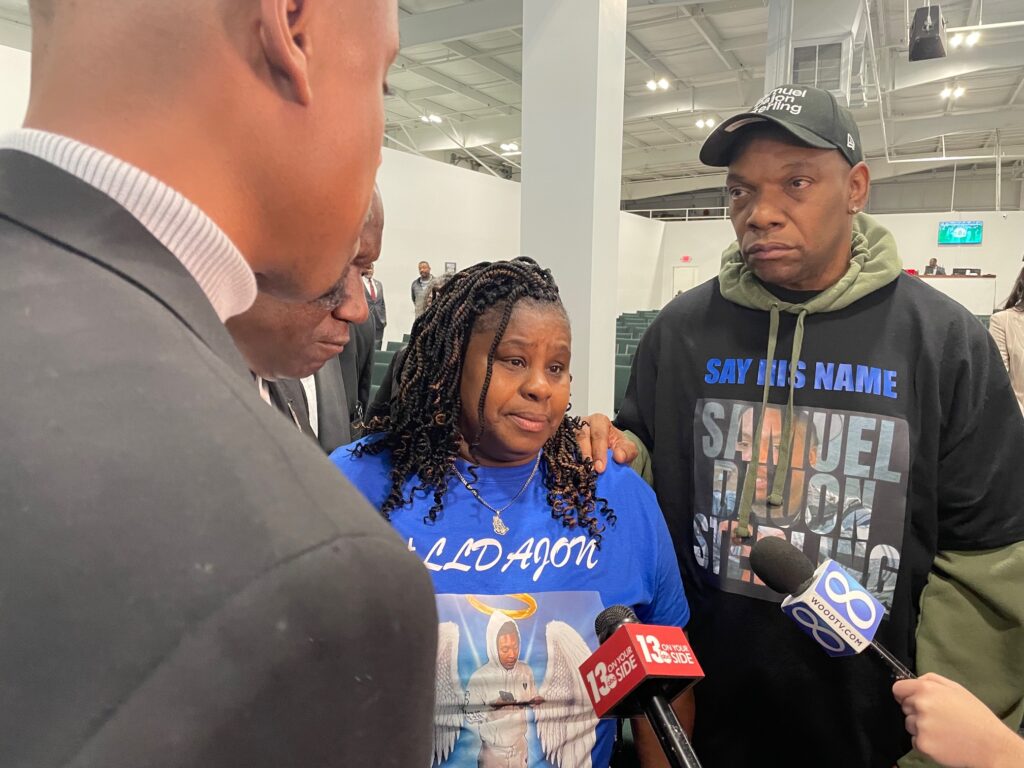
“Unfortunately, my little cousin was traumatized by the police because about five years prior to (Samuel) getting killed, another family member of ours was killed,” Jermar Sterling said.
“He lost one of his closest family members by the police killing him with a gun. He (Samuel) was already scared of the police, that’s why he kept running. My uncle wanted him to turn himself in because my uncle feared just this,” Jermar Sterling said of his cousin’s intense fear and distrust of police in Grand Rapids.
Andrica Cage, Samuel Sterling’s mother, told The Final Call that she remains very hurt over her son’s death and that losing her youngest child is as devastating to her as it would be to any other parent.
“I just lost my baby, there are no words that can really explain that” she said. “As far as my community (is concerned), I want everybody to know that I’m (going) to fight for everybody, not just for my son. He’s the beginning, but I’m going to fight for everyone, no matter what race they (are),” Ms. Cage insisted.
Honorary Kent County Commissioner, Robert S. Womack, a local community leader and activist in the Greater Grand Rapids area who devotes himself to human rights, civil rights, and equal justice under the law, told The Final Call that he first became aware of Samuel Sterling being struck by the police vehicle when one of Samuel’s family members contacted him and said they were on their way to the hospital.
“I immediately went to the hospital, so I was there with the family when he passed,” the former county commissioner said. “This officer called him a violent felon, (and) once they put the violent felon (label) on him—
which we don’t see anything in his record where he’s violently put his hands on anyone, assaulted anyone with any guns. We see a past gun possession charge. We don’t know why they’re telling the fire department that he’s a violent felon,” Mr. Womack said.
According to records, Samuel Sterling did serve his required jail time, Mr. Womack noted, but he failed to fulfill his obligation to check in with his probation officer as required. Mr. Womack also described how misinformation and cynicism can generate contempt for a community that officers are duty-bound and sworn to serve and protect but could lead to heavy-handed tactics and policies that end in tragedy.
Mr. Womack reflected on his own unpleasant, violent interaction with police a few years before he took office, “so I know what they do,” he said.
“This is why after Samuel Sterling was struck by the vehicle, they tried so hard to find a weapon. They were not concerned with getting him to the hospital or getting him care. They were concerned with making sure the officer would never have to face charges,” he said.
“It’s easier for an officer to say it was an accident or it’s easier for an officer to be facing manslaughter of vehicular homicide, that is why we are pushing for the highest charges that can be brought in the Samuel Sterling case.”
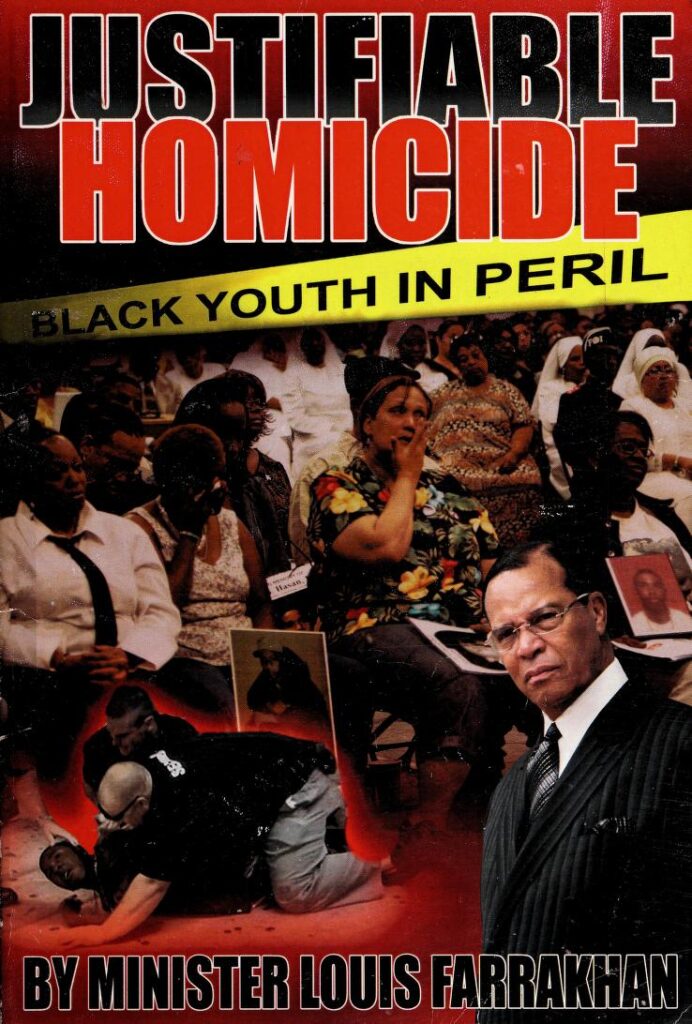
Black youth in peril
Nation of Islam Student Minister Sultan Z. Muhammad, of Mosque No. 61, under the leadership of the Honorable Minister Louis Farrakhan, told The Final Call that he first became aware of Samuel Sterling’s death from social media, the young rapper’s family, and through the news conference held by civil rights attorney Ben Crump on April 26 at Renaissance Church of God in Christ in Grand Rapids.
“In the areas of the city where we have the chance to speak with the people, (young people) tend to vent to us in a way, knowing the work of the Honorable Minister Louis Farrakhan and his strong voice of justice and his strong voice of defense for our people. They know that when we show up, that we show up out of that spirit of love for them,” Student Minister Muhammad said.
“The Honorable Minister Louis Farrakhan, for decades now, has been warning of the plot and plan of the United States government that has trickled down all the way to law enforcement. He’s made us aware of the war on drugs being a war on Black people, and he’s made us aware of the plan against our people,” Student Minister Muhammad explained.
To order the booklet or DVD/CD/MP3 message: “Justifiable Homicide: Black Youth in Peril,” by the Honorable Minister Louis Farrakhan, visit store.finalcall.com.












